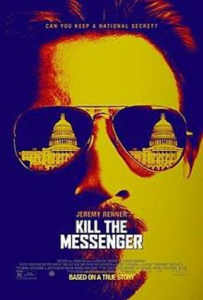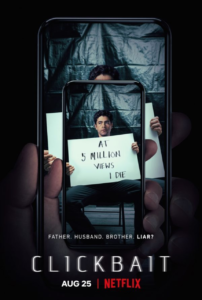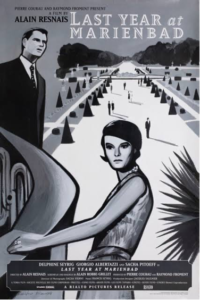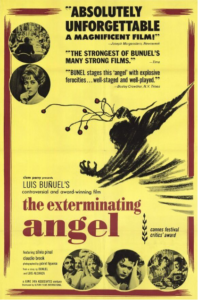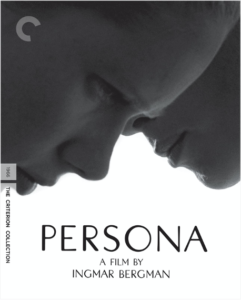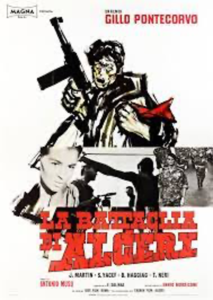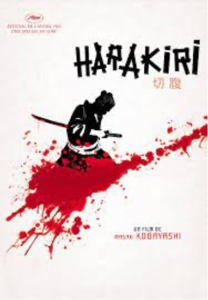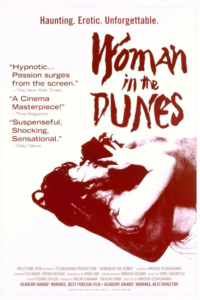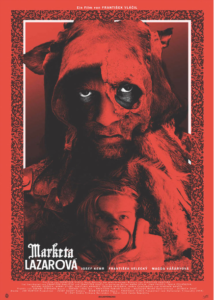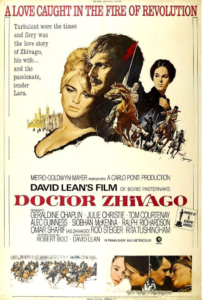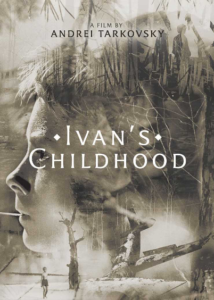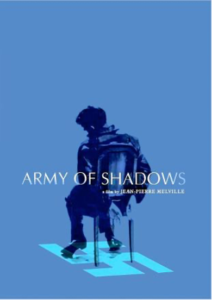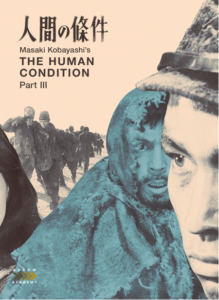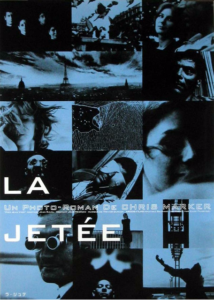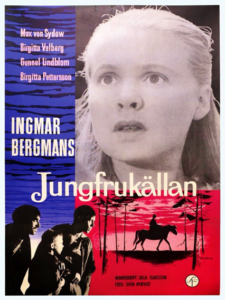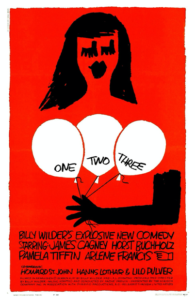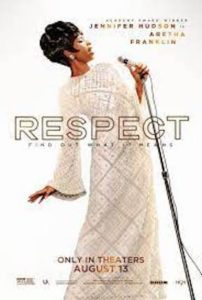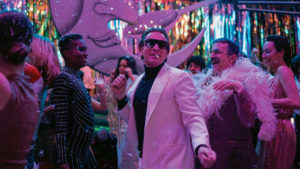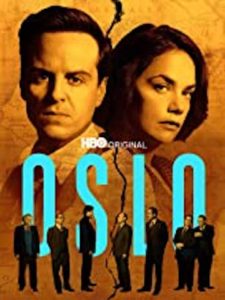Best Films of the 1960s:
30 Movies That Shaped My Life
In no particular order…
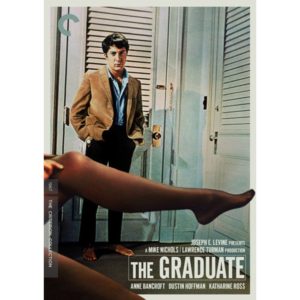
The Graduate (1967)
Directed by Mike Nichols
Starring Dustin Hoffman, Anne Bancroft, Katharine Ross
Plot: Benjamin Braddock (Dustin Hoffman), a recent college graduate with no plans for the future, has an affair with Mrs. Robinson (Ann Bancroft), a friend of his upper-middle-class parents, and then falls in love with Elaine (Katharine Ross), Mrs. Robinson’s daughter.
Reception: Rotten Tomatoes – 87% positive based on 82 reviews. “The music, the performances, the precision in capturing the post-college malaise – The Graduate’s coming-of-age story is indeed one for the ages.”
Why it made my list: That memorable last moment on the bus. Life has no happy endings.
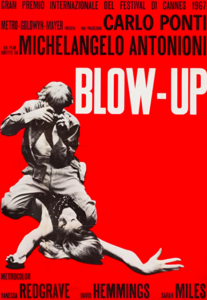
Blow-Up (1966)
Directed by Michelangelo Antonioni
Starring David Hemmings, Vanessa Redgrave, Sarah Miles
Plot: Thomas (David Hemmings), a successful fashion photographer in 1960s London, believes that he inadvertently captured a murder on film. But did it really happen?
Reception: Rotten Tomatoes – 88% positive based on 50 reviews. “Exquisitely shot and simmering with unease, Michelangelo Antonioni’s Blow-Up is an enigma that invites audiences to luxuriate in the sensual atmosphere of 1960s London chic.”
Why it made my list: I loved everything about this movie – the story, the acting, the direction, the set designs, the costuming, and, best of all, the subject matter. It was my first exposure to metafiction and the first “perfect” movie I had ever seen.
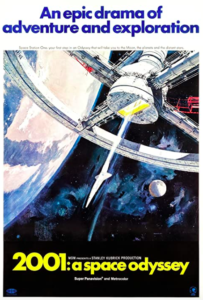
2001: A Space Odyssey (1968)
Directed by Stanley Kubrick
Starring Keir Dullea, Gary Lockwood, William Sylvester
Plot: The discovery of a mysterious artifact buried beneath the surface of the moon starts a search by Earth’s scientists for its origins (with help from supercomputer HAL 9000).
Reception: Rotten Tomatoes – 92% positive based on 113 reviews. “One of the most influential of all sci-fi films – and one of the most controversial – Stanley Kubrick’s 2001 is a delicate, poetic meditation on the ingenuity – and folly – of mankind.”
Why it made my list: A visual masterpiece. It opened my mind to the importance of photography, sound, and editing in film.
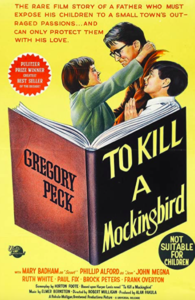
To Kill a Mockingbird (1962)
Directed by Robert Mulligan
Starring Gregory Peck, John Megna, Frank Overton
Plot: Atticus Finch (Gregory Peck), a lawyer in a small town in Alabama, defends a black man accused of raping a white woman. Amidst the drama of the trial, Atticus and his two children are forced to confront the blatant prejudice that surrounds them.
Reception: Rotten Tomatoes – 92% positive based on 66 reviews. “To Kill a Mockingbird is a textbook example of a message movie done right – sober-minded and earnest, but never letting its social conscience get in the way of gripping drama.”
Why it made my list: It gave me a visceral understanding of the evil and the horror of racism.
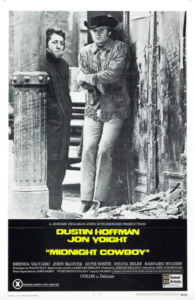
Midnight Cowboy (1969)
Directed by John Schlesinger
Starring Dustin Hoffman, Jon Voight, Sylvia Miles
Plot: Wannabe cowboy Joe Buck (Jon Voight) ditches his life as a dishwasher in Texas to become a male prostitute in New York City. He fails miserably until he links up with a streetwise con man, Enrico “Ratso” Rizzo (Dustin Hoffman).
Reception: Rotten Tomatoes – 87% positive based on 78 reviews. “John Schlesinger’s gritty, unrelentingly bleak look at the seedy underbelly of urban American life is undeniably disturbing, but Dustin Hoffman and Jon Voight’s performances make it difficult to turn away.”
Why it made my list: It helped me understand the reality of circumstance and the possibility of compassion.
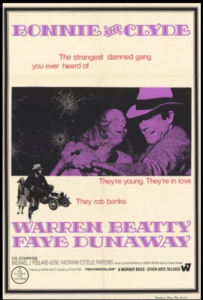
Bonnie and Clyde (1967)
Directed by Arthur Penn
Starring Warren Beatty, Faye Dunaway, Michael J. Pollard
Plot: Based partly on a true story, the infamous duo robs banks, steals cars, and terrorizes small towns in the Depression-era Southwest.
Reception: Rotten Tomatoes – 88% positive based on 64 reviews. “A paradigm-shifting classic of American cinema, Bonnie and Clyde packs a punch whose power continues to reverberate through thrillers decades later.”
Why it made my list: It made me want to be an outlaw, a want I never outgrew.
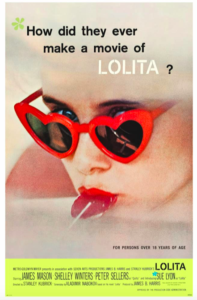
Lolita (1962)
Directed by Stanley Kubrick
Starring James Mason, Shelley Winters, Sue Lyon
Plot: In this tale of forbidden love, based on the novel by Vladimir Nabokov, Humbert Humbert (James Mason), a middle-aged British professor, is swept into a relationship with Charlotte Haze (Shelley Winters), his widowed and sexually famished landlady, whom he marries so that he can pursue her 14-year-old flirtatious daughter, Lolita (Sue Lyon), the object of his obsession.
Reception: Rotten Tomatoes – 91% positive based on 43 reviews. “Kubrick’s Lolita adapts its seemingly unadaptable source material with a sly comedic touch and a sterling performance by James Mason that transforms the controversial novel into something refreshingly new without sacrificing its essential edge.”
Why it made my list: It was half as good as the book, which made it twice as good as 99% of the other movies made in that decade. The final scene was heartbreaking.
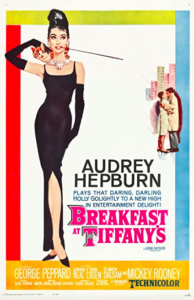
Breakfast at Tiffany’s (1961)
Directed by Blake Edwards
Starring Audrey Hepburn, George Peppard, Patricia Neal
Plot: Holly Golightly (Audrey Hepburn), a young New York “escort,” meets Paul (George Peppard), a struggling writer and “kept man” who falls in love with her.
Reception: Rotten Tomatoes – 89% positive based on 53 reviews. “It contains some ugly anachronisms, but Blake Edwards is at his funniest in this iconic classic, and Audrey Hepburn absolutely lights up the screen.”
Why it made my list: It solidified my admiration for and infatuation with truly independent woman.
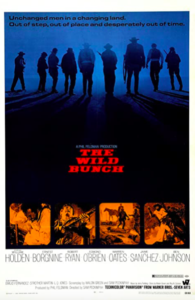
The Wild Bunch (1969)
Directed by Sam Peckinpah
Starring William Holden, Ernest Borgnine, Robert Ryan
Plot: It’s 1913, at the height of the Mexican Revolution, and a band of aging outlaws flees to Mexico for one last showdown.
Reception: Rotten Tomatoes – 90% positive based on 63 reviews. “The Wild Bunch is Sam Peckinpah’s shocking, violent ballad to an old world and a dying genre.”
Why it made my list: It made me think, “This is cool. This is how Westerns should be made.”
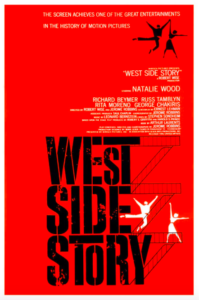
West Side Story (1961)
Directed by Jerome Robbins and Robert Wise
Starring Natalie Wood, George Chakiris, Richard Beymer
Plot: West Side Story delivers a modern musical twist on the classic romantic tragedy of Romeo and Juliet. Two young teens from rival street gangs fall hopelessly in love, triggering a series of tragic events.
Reception: Rotten Tomatoes – 91% positive based on 79 reviews. “Buoyed by Robert Wise’s dazzling direction, Leonard Bernstein’s score, and Stephen Sondheim’s lyrics, West Side Story remains perhaps the most iconic of all the Shakespeare adaptations to visit the big screen.”
Why it made my list: It opened my mind to theater – musicals, in particular. And it helped me understand the potential and limitations of adapting stage performances to the screen.
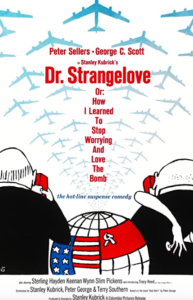
Dr. Strangelove (1964)
Directed by Stanley Kubrick
Starring Peter Sellers, George C. Scott, Sterling Hayden
Plot: US Air Force General Jack Ripper (Sterling Hayden), a complete nutjob, deploys a B-52 bomber to destroy the USSR. Total frenzy ensues in the War Room, as politicians and military bigshots frantically and comedically try to block the path to nuclear war.
Reception: Rotten Tomatoes – 98% positive based on 92 reviews. “Stanley Kubrick’s brilliant Cold War satire remains as funny and razor-sharp today as it was in 1964.”
Why it made my list: It introduced me to cinematic satire and made me a lifelong fan of Peter Sellers.
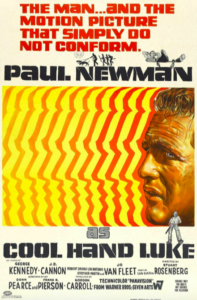
Cool Hand Luke (1967)
Directed by Stuart Rosenberg
Starring Paul Newman, George Kennedy, Strother Martin
Plot: Petty criminal Luke Jackson (Paul Newman) is sentenced to two years on a Florida prison farm, where he refuses to conform to the harsh rules of the sadistic warden.
Reception: Rotten Tomatoes – 100% positive based on 53 reviews. “Though hampered by Stuart Rosenberg’s direction, Cool Hand Luke is held aloft by a stellar script and one of Paul Newman’s most indelible performances.”
Why it made my list: It gave me a visual definition of integrity that matched my father’s view.
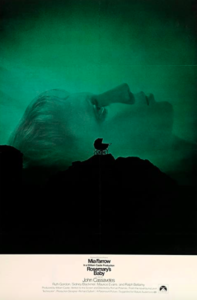
Rosemary’s Baby (1968)
Directed by Roman Polanski
Starring Mia Farrow, John Cassavetes, Ruth Gordon
Plot: When Rosemary Woodhouse (Mia Farrow) moves into an eerie New York City apartment with her husband Guy (John Cassavetes), strange things begin to happen.
Reception: Rotten Tomatoes – 96% positive based on 73 reviews. “A frightening tale of Satanism and pregnancy that is even more disturbing than it sounds thanks to convincing and committed performances by Mia Farrow and Ruth Gordon.”
Why it made my list: It scared the hell out of me in a new, non-gimmicky, organic way.
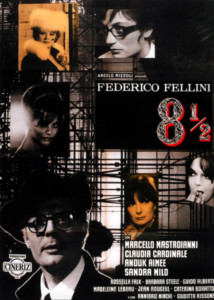
8 ½ (1963)
Directed by Federico Fellini
Starring Marcello Mastroianni, Anouk Aimée, Claudia Cardinale
Plot: Filmmaker Guido Anselmi (Marcello Mastroianni) struggles to come up with a vision for his new movie. In the process, he strays into the tangled thoughts of his past and present, ranging from romantic and fantastical to hopeless and chaotic.
Reception: Rotten Tomatoes – 98% positive based on 54 reviews. “Inventive, thought-provoking, and funny, 8 1/2represents the arguable peak of Federico Fellini’s many towering feats of cinema.”
Why it made my list: It introduced me to a different sort of film – one that was at once bewildering and mesmerizing.
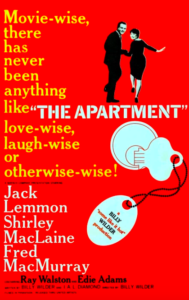
The Apartment (1960)
Directed by Billy Wilder
Starring Jack Lemmon, Shirley MacLaine, Fred MacMurray
Plot: C.C. Baxter (Jack Lemmon) finds himself falling for the woman (Shirley MacLaine’s Fran Kubelik) who is having an affair with his high-ranking boss.
Reception: Rotten Tomatoes – 93% positive based on 72 reviews. “Director Billy Wilder’s customary cynicism is leavened here by tender humor, romance, and genuine pathos.”
Why it made my list: This felt new. Dangerous. Taboo. And yet true.
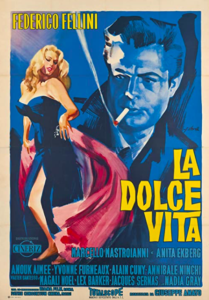
La Dolce Vita (1960)
Directed by Federico Fellini
Starring Marcello Mastroianni, Anita Ekberg, Anouk Aimée
Plot: Caught up in the “the sweet life” (la dolce vita) of early 1960s Rome, journalist Marcello Rubini (Marcello Mastroianni) spends his alcohol-fueled nights on a futile (and comedic) search for love and happiness.
Reception: Rotten Tomatoes – 96% positive based on 74 reviews. “An epic, breathtakingly stylish cinematic landmark, La Dolce Vita remains riveting in spite of – or perhaps because of – its sprawling length.”
Why it made my list: I was seduced by Marcello Mastroianni, Anita Ekberg, and most of all by Anouk Aimée. After that, I watched every film they were in.
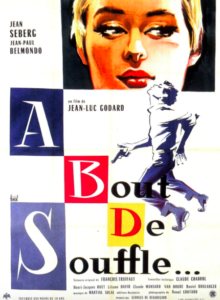
Á Bout de Souffle (Breathless) (1960)
Directed by Jean-Luc Godard
Starring Jean-Paul Belmondo, Jean Seberg, Daniel Boulanger
Plot: A petty thief, Michel Poiccard (Jean-Paul Belmondo), steals a car, kills a policeman, and flees to Paris to hide. He takes refuge with a beautiful American student, Patricia Francini (Jean Seberg), and tries to talk her into helping him escape to Rome.
Reception: Rotten Tomatoes – 97% positive based on 69 reviews. “Breathless rewrote the rules of cinema – and more than 50 years after its arrival, Jean-Luc Godard’s paradigm-shifting classic remains every bit as vital.”
Why it made my list: Another genre of film and filmmaking that was thrilling to discover. I became an instant and forever Jean-Luc Godard fan.
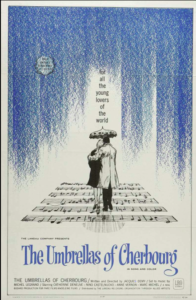
The Umbrellas of Cherbourg (1964)
Directed by Jacques Demy
Starring Catherine Deneuve, Nino Castelnuovo, Anne Vernon
Plot: Set in a charming 1950s French town, this musical tells the story of star-crossed lovers torn apart by distance and war.
Reception: Rotten Tomatoes – 99% positive based on 67 reviews. “Jacques Demy elevates the basic drama of everyday life into a soaring opera full of bittersweet passion and playful charm, featuring a timeless performance from Catherine Deneuve.”
Why it made my list: My first love affair with Catherine Deneuve.
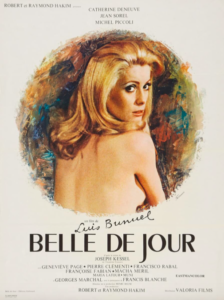
Belle de Jour (1967)
Directed by Luis Buñuel
Starring Catherine Deneuve, Jean Sorel, Michel Piccoli
Plot: Séverine (Catherine Deneuve) and Pierre (Jean Sorel) appear to have a picture-perfect marriage. In reality, though she loves her husband, the beautiful Séverine is frigid. She fantasizes about sexual encounters with complete strangers, and eventually becomes a high-class prostitute during the day, while her husband is at work. The “action” of the film, which is highly erotic, takes place almost entirely in her imagination.
Reception: Rotten Tomatoes – 95% positive based on 57 reviews. “Belle de Jour is a film that’s ambiguous and alluring in equal measure, and while that can be alienating for modern audiences, this is a film that is still radical, thought-provoking, and enticing.”
Why it made my list: Now I get to see Deneuve as a femme de la nuit?
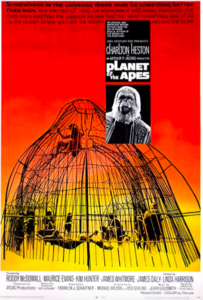
Planet of the Apes (1968)
Directed by Franklin J. Schaffner
Starring Charlton Heston, Roddy McDowall, Kim Hunter
Plot: In this science-fiction classic, three astronauts crash-land on a planet ruled by apes.
Reception: Rotten Tomatoes – 86% positive based on 59 reviews. “Planet of the Apes raises thought-provoking questions about our culture without letting social commentary get in the way of the drama and action.”
Why it made my list: By today’s standards, it is primitive in almost every way. Back then, it was a technological wonder.
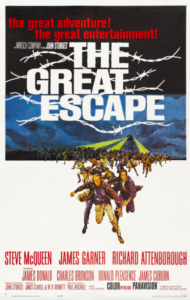
The Great Escape (1963)
Directed by John Sturges
Starring Steve McQueen, James Garner, Richard Attenborough
Plot: Based on a true story, The Great Escape depicts an ambitious mass escape by POWs from a German prison camp during World War II.
Reception: Rotten Tomatoes – 94% positive based on 49 reviews. “This is one of the all-time great war movies, a POW adventure from director John Sturges that celebrates the indomitable spirit of the Allied forces even when their backs were to the wall.”
Why it made my list: Great plot. Great characters. Steve McQueen.
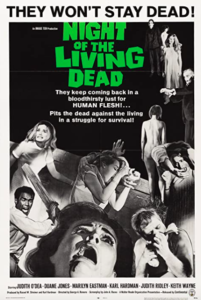
Night of the Living Dead (1968)
Directed by George A. Romero
Starring Duane Jones, Judith O’Dea, Karl Hardman
Plot: Chaos and fear descend on the Pennsylvania countryside when the dead inexplicably come back to life.
Reception: Rotten Tomatoes – 97% positive based on 70 reviews. “If [Romero’s] original vision of the undead looks dulled by today’s standards, his embedded political commentary on racism feels just as sharp.”
Why it made my list: My introduction to zombies. What theatrical invention was ever cooler than zombies? And how can you possibly top a George A. Romero depiction of them?
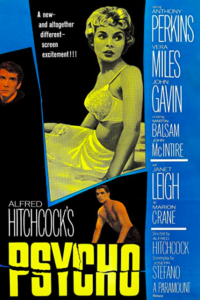
Psycho (1960)
Directed by Alfred Hitchcock
Starring Anthony Perkins, Janet Leigh, Vera Miles
Plot: Marion Crane (Janet Leigh), a secretary fed up with her job, impulsively steals $40,000 from her boss and goes on the run. Night falls and a heavy rainstorm forces her to seek shelter in the creepy looking Bates Motel run by Norman Bates (Anthony Perkins), a painfully shy man with a dark secret.
Reception: Rotten Tomatoes – 96% positive based on 104 reviews. “Infamous for its shower scene, but immortal for its contribution to the horror genre. Because Psycho was filmed with tact, grace, and art, Hitchcock didn’t just create modern horror, he validated it.”
Why it made my list: My introduction to Alfred Hitchcock and his genius in setting scenes.
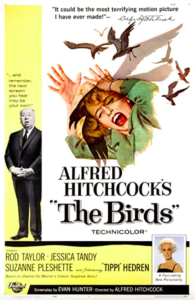
The Birds (1963)
Directed by Alfred Hitchcock
Starring Rod Taylor, Tippi Hedren, Jessica Tandy
Plot: Melanie Daniels (Tippi Hedren) and Mitch Brenner (Rod Taylor) “meet cute” in a pet shop. Finding him attractive, she follows him to his hometown, and love blossoms. But then, suddenly and inexplicably, the birds in the town begin to act strangely, gathering by the thousands and viciously attacking people.
Reception: Rotten Tomatoes – 95% positive based on 57 reviews. “Hitchcock prolongs his prelude to horror for more than half the film, playing with audience suspense with comedy and romance while he sets his stage. The horror when it comes is a hair-raiser.”
Why it made my list: Birds? I was sure I wouldn’t be scared, but this movie gave me nightmares. I had to think about how Hitchcock did that. I’m still thinking about it.
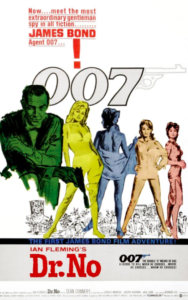
Dr. No (1962)
Directed by Terence Young
Starring Sean Connery, Ursula Andress, Bernard Lee
Plot: British secret agent 007, James Bond (Sean Connery), is assigned to the West Indies to investigate the mysterious disappearance of another British agent. He encounters deadly assassins, femme fatales, and a notorious megalomaniac.
Reception: Rotten Tomatoes – 95% positive based on 59 reviews. “Featuring plenty of the humor, action, and escapist thrills the series would become known for, Dr. No kicks off the Bond franchise in style.”
Why it made my list: I had read several James Bond books before I saw Dr. No, and when I saw Sean Connery, I knew he was the only actor that could possibly play that role for me. He still is.
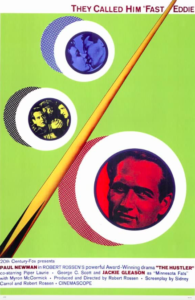
The Hustler (1961)
Directed by Robert Rossen
Starring Paul Newman, Jackie Gleason, Piper Laurie
Plot: “Fast Eddie” Felson (Paul Newman), a second-rate pool shark attempting to break into the lucrative world of professional pool hustling, falls for a woman with self-destructive impulses almost as bad as his own.
Reception: Rotten Tomatoes – 98% positive based on 45 reviews. “Paul Newman and Jackie Gleason give iconic performances in this dark, morally complex tale of redemption.”
Why it made my list: Cool Hand Luke. And now Fast Eddie? Paul Newman defined not just integrity but cool.
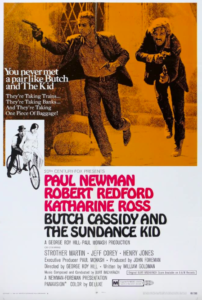
Butch Cassidy and the Sundance Kid (1969)
Directed by George Roy Hill
Starring Paul Newman, Robert Redford, Katharine Ross
Plot: At the turn of the 20th century in Wyoming, Butch Cassidy (Paul Newman), the leader of a band of outlaws, and his sidekick, the Sundance Kid (Robert Redford), flee to Bolivia after a train robbery goes awry.
Reception: Rotten Tomatoes – 88% positive based on 52 reviews. “With its iconic pairing of Paul Newman and Robert Redford, jaunty screenplay, and Burt Bacharach score, Butch Cassidy and the Sundance Kid has gone down as among the defining moments in late-60s American cinema.”
Why it made my list: Okay, there must have been a Paul Newman movie I didn’t love back then. I just can’t remember one. And Robert Redford did a pretty good job, too.
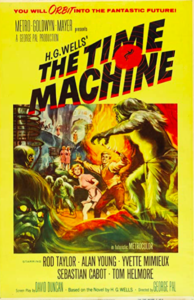
The Time Machine (2002)
Directed by George Pal
Starring Rod Taylor, Alan Young, Yvette Mimieux
Plot: Inspired by the H.G. Wells novel, The Time Machine, is a cautionary tale. Scientist and inventor George (Rod Taylor) builds a time machine in the year 1900 and uses it to journey thousands of years into the future, discovering a dismal post-apocalyptic world.
Reception: Rotten Tomatoes – 76% positive based on 38 reviews. “Its campy flourishes tend to subdue its dramatic stakes, but The Time Machine brings H.G. Wells’ story to life with plenty of sci-fi charm and a colorful sense of visual design.”
Why it made my list: I believed it. I was sure it would come true. And it did.
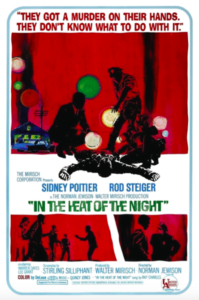
In the Heat of the Night (1967)
Directed by Norman Jewison
Starring Sidney Poitier, Rod Steiger, Warren Oates
Plot: After the murder of a wealthy white factory owner, Mississippi police accuse African-American detective Virgil Tibbs (Sidney Poitier) of committing the crime. After Tibbs proves his own innocence, Chief of Police Bill Gillespie (Rod Steiger) reluctantly joins forces with him to track down the real killer.
Reception: Rotten Tomatoes – 95% positive based on 55 reviews. “Tense, funny, and thought-provoking all at once, and lifted by strong performances from Sidney Poitier and Rod Steiger, director Norman Jewison’s look at murder and racism in small-town America continues to resonate today.”
Why it made my list: Racism was (and is) real. This movie helped me understand it in a different, more topical way than did To Kill a Mockingbird.
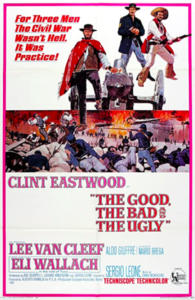
The Good, the Bad, and the Ugly (1966)
Directed by Sergio Leone
Starring Clint Eastwood, Eli Wallach, Lee Van Cleef
Plot: Set in the Southwest during the Civil War, an unlikely trio (a professional gun slinger, a hitman, and a wanted outlaw) set out to find $200,000 worth of buried gold coins.
Reception: Rotten Tomatoes – 97% positive based on 77 reviews. “Arguably the greatest of the spaghetti westerns, this epic features a compelling story, memorable performances, breathtaking landscapes, and a haunting score.”
Why it made my list: It set the standard for a great B-Movie genre. And it introduced me to Clint Eastwood and his amazing career.
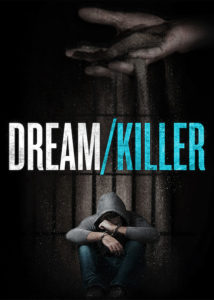
 MarkFord
MarkFord

